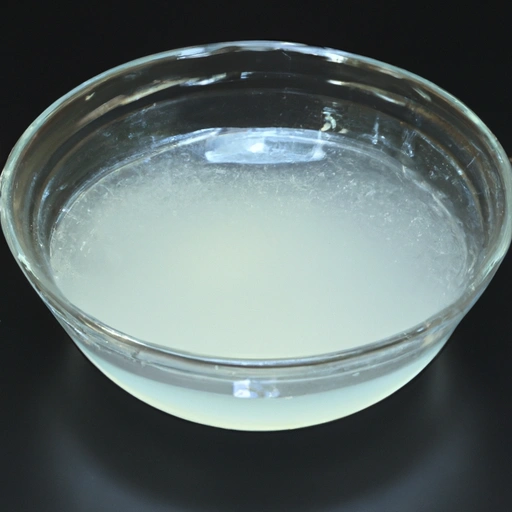Agar
Description

Agar, also known as agar-agar, is a gelatinous substance derived from red algae. It has become a popular ingredient in cooking and baking, especially as a plant-based substitute for gelatin. Agar is known for its strong gelling properties and is used in a variety of recipes, ranging from desserts to savory dishes. The substance is sold in several forms, including flakes, powder, and bars, and it is measured in both metric (grams) and customary American (ounces) units, depending on the region and recipe.
Common uses
Agar is commonly used as a thickening agent in jams, jellies, puddings, marshmallows, and other sweets. It is also employed in savory dishes, such as aspics and pâtés, and as a clarifying agent in brewing. Additionally, agar serves as a stabilizer and emulsifier in various food products, including ice cream and cream cheeses.
Nutritional value
Calories
Agar is low in calories, making it an ideal ingredient for those managing their weight.
Protein
While agar is not a significant source of protein, it does contain a small amount, contributing to its nutritional profile.
Fat
Agar is fat-free, which is beneficial for heart health and cholesterol management.
Carbohydrates
Most of agar's composition is soluble fiber, which aids in digestion and provides minimal carbohydrates.
Vitamins
Agar contains a trace amount of vitamins, predominantly from the seaweed it is derived from.
Minerals
Agar provides minerals like calcium, magnesium, and potassium, although in small quantities.
Health benefits
Agar's high fiber content can help improve digestive health and promote a feeling of fullness, which may assist in weight management. The fiber also acts as a prebiotic, supporting gut bacteria health. Being plant-based, agar is suitable for vegetarians and vegans and is allergen-free, making it a safe option for individuals with specific dietary requirements.
Potential risks
While agar is generally considered safe for consumption, overconsumption can lead to gastrointestinal issues such as bloating or constipation due to its high fiber content. It is also important to consume it with plenty of water. As with any dietary supplement or ingredient, those with health concerns should consult with a healthcare provider before incorporating significant amounts of agar into their diet.
Common recipes
Agar can be used to make vegan gelatin desserts, fruit aspics, panna cotta, and vegan marshmallows. It is also used in dairy-free cheesecakes and mousses.
Cooking methods
Agar must be dissolved in liquid at a boil before it can set. The typical ratio is 1 teaspoon of agar powder to thicken 1 cup of liquid. Agar flakes are less potent, requiring roughly 1 tablespoon for the same amount of liquid.
Pairing with other ingredients
Agar pairs well with citrusy flavors, coconut milk, and fruits like mango, pineapple, and berry varieties. It can also complement savory dishes, enhancing textures without altering taste.
Summary
Agar is a versatile and health-conscious ingredient prized for its gelling abilities. It serves as a vegetarian alternative to gelatin and has a myriad of applications in cooking and baking. When used properly, it can create a variety of delightful textures and is a useful component of a balanced diet.